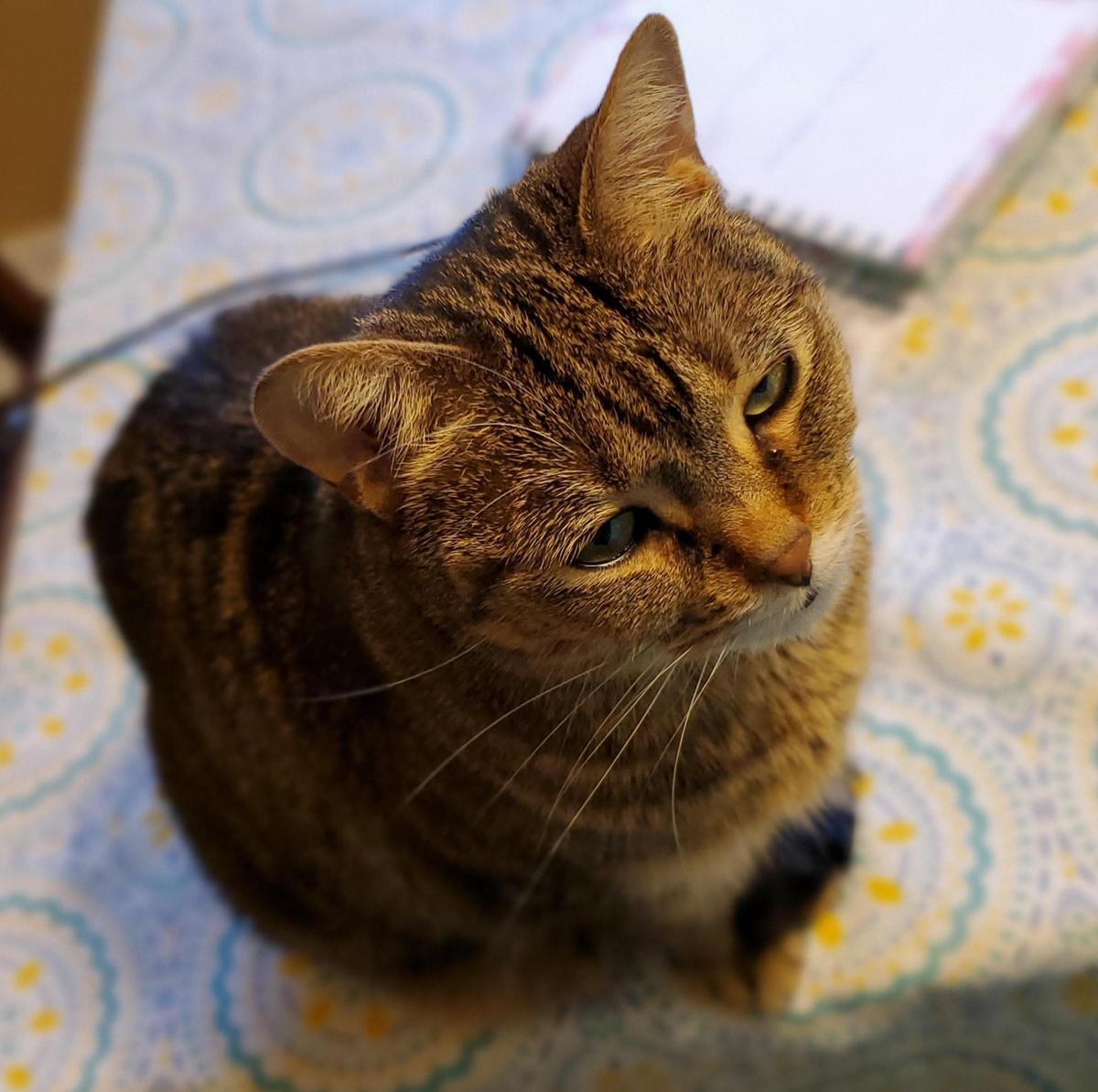
- posted: Sep. 22, 2020
Litter Box Etiquette
When it comes to cats, one of the most important behavior situations we need to address is litter box etiquette. Litter boxes are very similar to human port-a-potties. They never get flushed and they are usually used by many. Since cats are fickle animals, this can be a problem.
When trying to decide what type of litter box and substrate to buy for your cat, keep the following in mind:
- Cats like boxes that aren’t covered
- Cats like scoopable litter, with low dust
- Cats like to have room to move around, so the box should be at least 1.5 times the size of the cat
- Cats also like to bury their urine and feces, so each box needs to have 2-3 inches of litter in them
Rubbermaid totes work great. Leave the top off, cut a hole in the side or front making it big enough for the cat to pass through easily. These totes are big enough for the cat to move around comfortably, and holds enough litter to comfortably dig in.
Placement of litter boxes is just as important as what type of litter box to buy. When deciding on where to place the litterbox keep some things in mind:
- It shouldn’t be in a high-traffic area
- It needs to be easily accessible and your cat should feel comfortable accessing it.
- In multiple cat households, litter boxes need to be placed so if there is a cat using it, another cat can’t come from behind and attack/pick on them.
- Always have 1 more litter box than you do cats.
- All litter boxes need to be in different areas of the house. If you have 3 litter boxes down in the basement with all 3 are right next to each other, your cats view that as 1 big litter box. It is similar to people using a bathroom with no stalls, right next to someone else.
- The boxes need to be placed in quiet areas. So, the laundry room or furnace room in the basement isn’t probably the best idea. When dryers, washers, and furnaces are going off those noise can make your cat uneasy.
The final way to help with litter box etiquette is the cleaning of the litter boxes. They need to be scooped daily. They need to be fully dumped about every 2-3 weeks, washed out, and litter replaced. Never use a high fragrance cleaner as it may upset your cat’s senses, we recommend a soap free of dyes and perfumes. It is also recommended to replace your litter boxes every 2 years.
If you follow the above litter box etiquette rules for your cats, you will have a lesser chance of any inappropriate bathroom habits. If you have concerns regarding your cat’s litter box etiquette, please contact us for a consultation.
Office Hours
M,W,F 9-6
T,Th 9-8
Exotic Corner: Beardies
For those who have an interest in owning reptiles, bearded dragons are a great place to start! These friendly little lizards from “Down Under” come with a big personality and are relatively easy to care for. They are gentle beasts and an excellent choice for companionship. The name bearded dragon refers to the beard, or the underside of the throat, which can turn black for several reasons, including stress. Their average lifespan is approximately 6-12 years. Bearded dragons are considered social animals in captivity. They tolerate handling, interaction with humans, and bond to their caretakers well. They are diurnal; meaning active during the day, in captivity, but in the wild are known to spend the hottest part of the day in cool burrows. Therefore, they may spend a portion of their day in a hiding spot.
If you acquire a beardie, he/she should be housed in a well-ventilated, screen-topped, 10-20 gallon tank for juveniles, and up to a 55-gallon enclosure for adults. Temperature should be 75-85°F in the coolest part of the habitat and 90-105°F in the basking area, with humidity maintained less than 50%. We recommend using infrared lamps and ceramic heat emitters rather than hot rocks, as the direct contact can lead to serious burns. Ultraviolet (UV) 2 light must be provided in the UVB spectrum 10-14 hours/day. Lack of UVB can cause metabolic bone disease via inhibiting calcium absorption. These bulbs must be replaced every 6 months, even if the light isn’t out because the amount of UVB emitted decreases over time. Bearded dragons regularly shed their skin. Signs of a healthy beardie are: active and alert attitude, clear eyes, healthy skin, firm dropping, and eating/drinking regularly. Red flags can be inappetence, mucous in mouth or nose, lethargy, sores, labored breathing, soft stool, or paralysis.
To ensure your beardie is in tip-top shape, we recommend complete physical examinations every 6-12 months, a yearly fecal exam to check for parasites, annual blood work to assess organ function, and routine hygiene, nail trims, and grooming.
***Attention***
While we are operating under restrictions due to Covid-19 our 2 phone lines are often busy. Please continue to try your phone call until you can get though. You can also message us on Facebook. Thank you!
Employee Spotlight:
Maggie Smith, LVT
Dr. Steele brought Maggie on as Practice Manager in April of 2015. She started working in the veterinary field in 2001 as a receptionist and assistant. She loved it so much, she went back to school to become an LVT and graduated from Baker College of Flint in 2009. Since then, Maggie has taken special interest in dentistry, parasitology, and practice management. She is currently studying for the Certified Veterinary Practice Manager exam, which she hopes to take next year.
During her time off Maggie loves to participate in local theater, spend time out of doors, and read. She lives in Howell with her girlfriend of 5 years, Deanna, and their animals; 2 dogs - Duke and Edith, and a cat named Penny. Her son, Caleb, is a Junior in college, attending Eastern Michigan University.




Hours of Operation
9:00 AM - 6:00 pm
9:00 AM - 8:00 pm
9:00 AM - 6:00 pm
9:00 AM - 8:00 pm
9:00 AM - 6:00 pm
Closed
Closed


